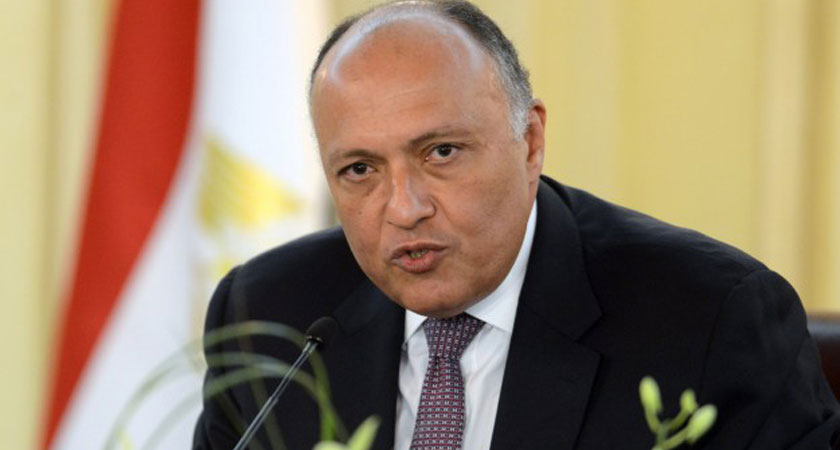Macrobiotic diet: A cancer cure?
“I believe in the macrobiotic diet very much. It absolutely helped and saved my life, it is exceptionally powerful, said Diana Berschader, a recent lymphatic cancer survivor, who credits her survival to the macrobiotic diet.
Over the past few decades, it has become evident that food can be an intense healing or severely damaging component of our lives. Over 30 percent of cancer deaths and a whopping 80 percent of cancers of the large bowel, breast, and prostate are thought to be due to carcinogens (cancer causing substances) in our foods according to studies by the US-based National Cancer Institute.
By the same token, the right foods should be able to heal us, not just from cancer but from many other diseases. Ideally, we would only eat natural and simple non-processed foods, unharmed by pesticides, genetic engineering and general mass farming practices.
This is the philosophy behind the macrobiotic diet (meaning “long life in Greek) which centers on simplicity and achieving a harmonious balance between two complementary forces of energy, the yin and the yan, in our diet and in all aspects of our lives. Madonna is one of several celebrities who are ardent advocates of the macrobiotic diet, claiming her physical and spiritual health is the result of a macrobiotic lifestyle.
The macrobiotic diet stipulates all food should be organic and eaten in season, cooked in a peaceful way and chewed slowly and thoroughly. Each macrobiotic diet is tailored according to the individual’s needs, health and environment.
An average macrobiotic diet consists of the following proportions of food: 50-60 percent whole grain cereals such as brown rice; 25-30 percent vegetables, 5-10 percent fermented soy products as a soup; 10 percent beans such as tofu; and 5 percent seaweed with small amounts of fish or seafood several times a week, as well as fruit, seeds and nuts.
Beverages should be mostly herbal and natural teas. The yin/yan content of food is determined by different factors such as acidity, color and moisture of the food. Foods which are either extremely yin (e.g. very sweet foods, dairy products) or extremely yan (e.g. very salty foods, red meat, coffee, potatoes, tropical fruits, and bananas) in nature are rarely eaten or avoided altogether. Sushi and miso soup are good examples of ideal macrobiotic foods.
Being low on fat, high on fiber, with a predominantly vegetarian and grain content, and rich in phytoestrogens from soy products, the macrobiotic diet has all the components of cancer prevention. Numerous research studies have shown that cancer rates are higher in populations whose diets are rich in fatty foods, particularly meat, and lower in populations that consume a more vegetarian diet.
Fruits and vegetables contain powerful antioxidants, minerals, vitamins and phytochemicals that aid the immune system and protect against disease, while animal products have been shown to contain potentially carcinogenic compounds, says a 1998 study by Ki Skog, Mae Johansson and Mi Jagerstad.
Furthermore, soy products are thought to decrease cholesterol and help decrease incidence of breast cancer – a notion advocated by complementary and alternative medicine advocates. Brown rice, an item particularly emphasized in the macrobiotic diet, is high in fiber and abundant in nutrients such as magnesium, manganese and selenium some of which are considered powerful anti-carcinogens. For example, selenium has been shown to inhibit growth of, and induce the death of cancer cells and to act as an aid to enzymes that play a large role in protection against cancer.
Yet the macrobiotic diet’s anti-cancer powers are shrouded in controversy, with the American Cancer Society finding no evidence that a macrobiotic diet is useful as a cure for cancer in humans according to a 1993 study published in the Cancer Journal for Clinicians.
Despite the lack of scientific evidence, numerous testimonies from cancer patients swear by its healing powers.
Cancer survivor Diana Berschader found conventional treatments unacceptable. She said: “I refused the conventional road of treatment of radiotherapy and chemotherapy, and having tried all other avenues including homeopathy and failed, I thought there must be something in this universe that can help me.
Three weeks before her radiotherapy was to start, Diana consulted the macrobiotic center in Berlin and embarked on the macrobiotic diet: “I noticed results after two weeks of being on the diet.it saved my life, says Diana. Today Diana is cancer free and is an ardent follower and advocate of the macrobiotic lifestyle.
Prevention is better than cure, and although most of us will be unable to adhere to the macrobiotic diet we should at least try to follow some of its principles by increasing our grains and vegetables intake and reducing our sugar and meats.
As Diana says: “The macrobiotic diet is hard to follow but absolutely amazing. The choice is yours .
Editor’s note: In last week’s article on Aspartame (Jan. 28, 2007), author Dr. May Meleigy referenced several medical studies on the use of the artificial sweetener including:
“Emerging facts about aspartame , by J. Barua and A. Bal in the volume 35, number 4 Journal of the Diabetic Association of India (1995); “Adverse Reactions to Aspartame: Double-Blind Challenge in Patients from a Vulnerable Population in Biological Psychiatry, 1993:34:13-17; L.Tollefson and RJ. Barnard’s “An Analysis of FDA passive surveillance reports of seizures associated with consumption of aspartame in the Journal of the American Diet Association 1992 May;92(5):598-601 and others.
Dr. May Meleigy holds a Ph.D in Immunology from the London School of Hygiene and Tropical Medicine, as well as an MSc. (Toxicology/pathology) and a B.Sc in pharmacology) from London University. May is a freelance medical/health writer and is currently producing Health Education programs for Egyptian TV.

